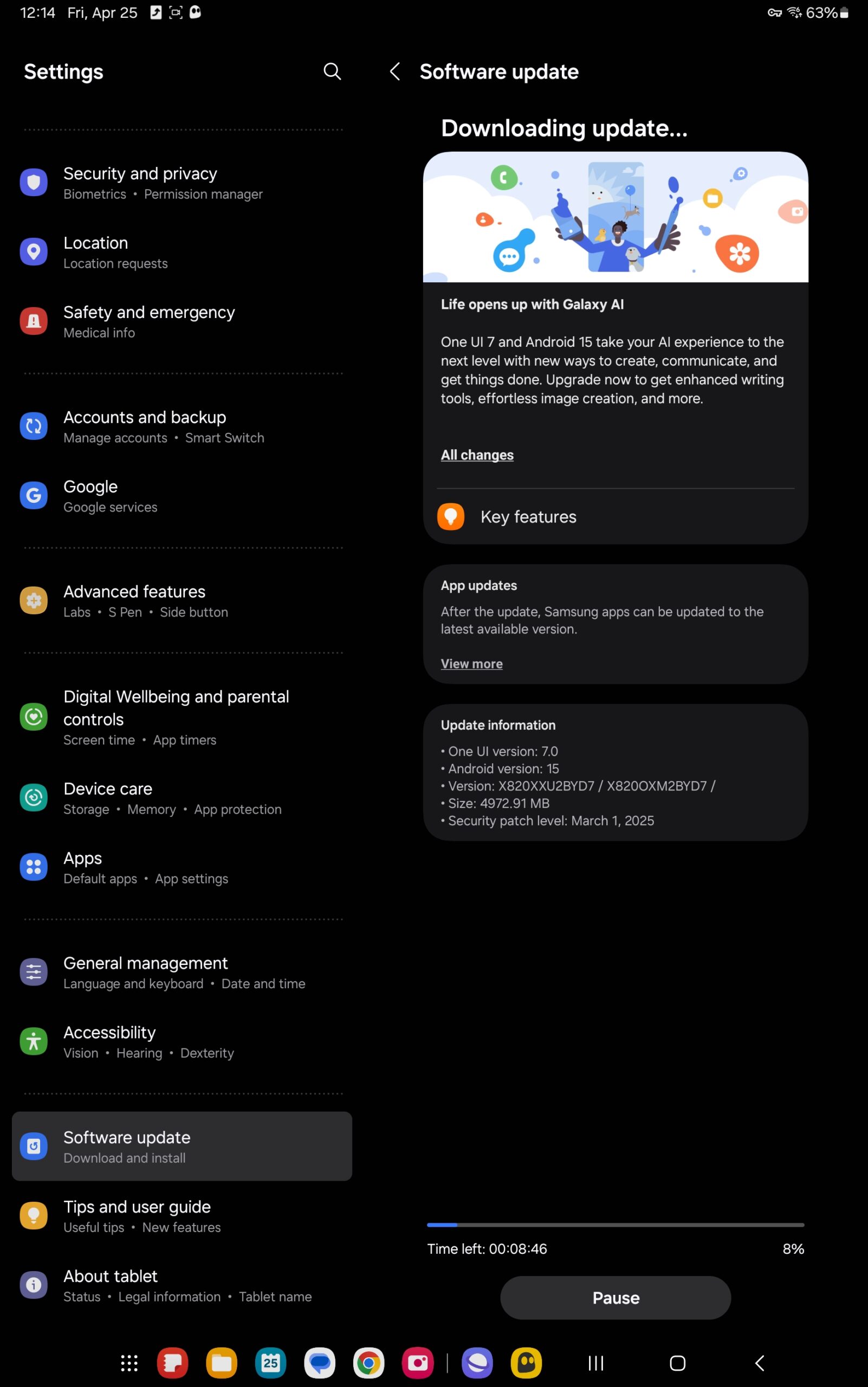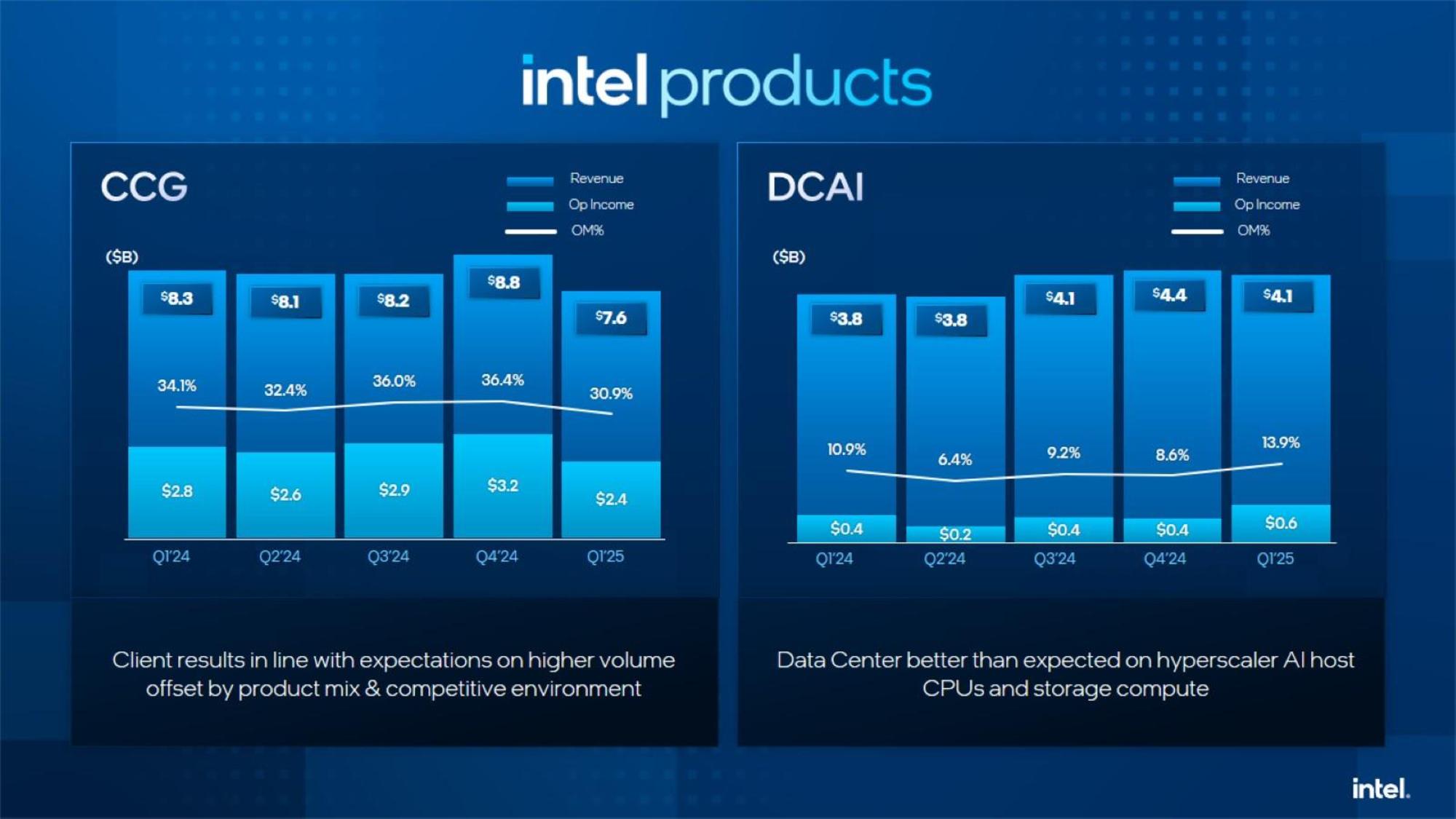Throughout 2023, the need for organizations to standardize on a single, AI-powered platform only grew. Developers were in need of an integrated platform that empowered them to collaborate more efficiently and deliver software at scale. Business leaders were additionally having to work through multiple platforms, maintain security and compliance, and work through tools that did not work together. Many platforms have attempted to address these challenges by providing some level of productivity and integration with other tech tools that you have in your workflow. From AI-driven solutions to powerfully built security, automation and continuous deployment, GitHub continues to help you innovate by building the developer platform centered on streamlining and supercharging the developer workflows.
Let’s take a look at the most recent GitHub Enterprise releases to help you build, secure, and ship software at scale. Adopting GitHub Enterprise allows your team to integrate into a single DevOps solution, with the potential to add-on native security with GitHub Advanced Security, and leverage all of the enterprise-ready tools that are built-in to streamline your software development lifecycle.
Migrations made easy
In listening to our customers, we’ve heard that organizations are focused on reducing their tool stack, minimizing costs, and empowering developers with an optimal experience to do their best work. Developers care most about having a collaborative coding environment, reducing repetitive tasks, and ensuring security is native to the tools they rely on in order to strengthen their security posture.
That’s why we’ve made it easier to migrate to the GitHub platform with GitHub Enterprise Importer and GitHub Actions Importer. Switching from Bitbucket Server and Bitbucket Data Center to GitHub Enterprise Cloud is now easier, safer, and more seamless, as is moving CI/CD pipelines from Bitbucket and Bamboo via GitHub Actions Importer.
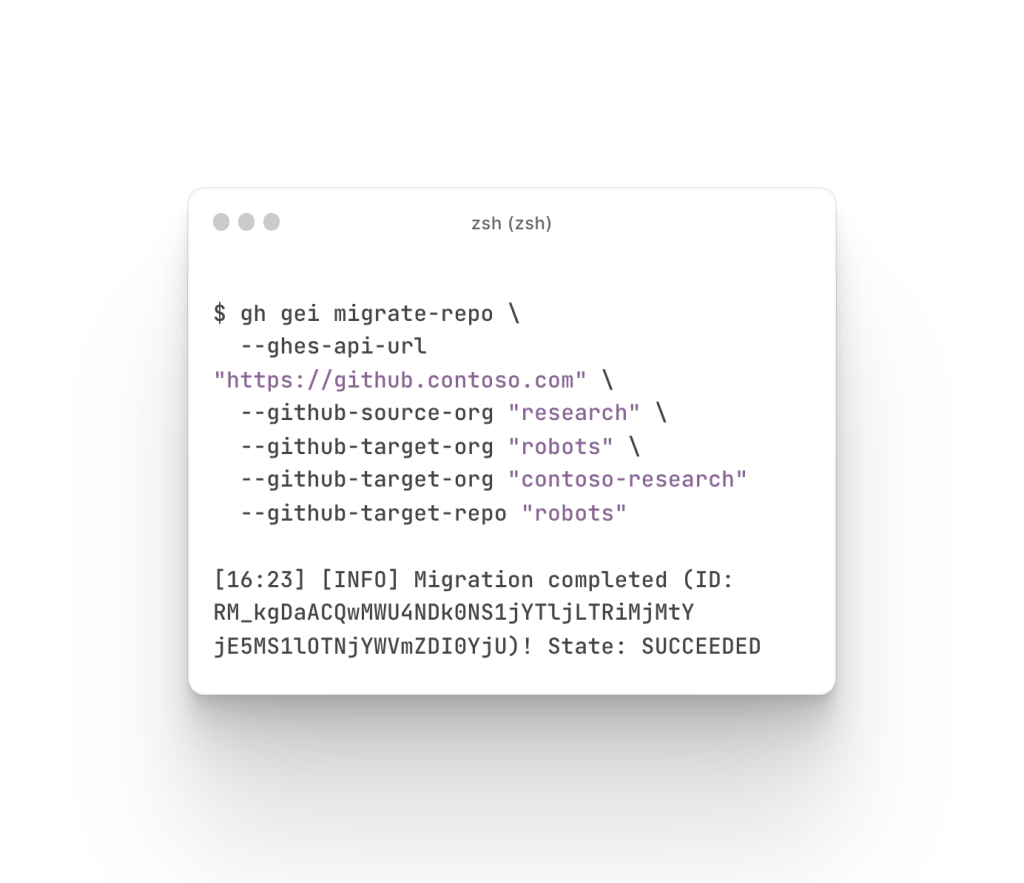
Better control and access for Enterprise Managed Users (EMU)
EMU administration enhancements provide powerful tools for troubleshooting and user management at scale. These features continue to improve how enterprises manage their identities and resources, empowering them to achieve greater control, security, and collaboration capabilities.
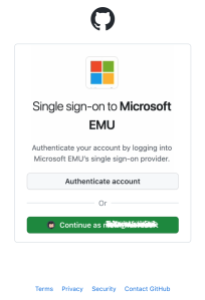
Enterprise accounts for all
Earlier this year, we introduced a new development in our commitment to serve our GitHub Enterprise customers. The introduction of enterprise accounts for all consolidates your users into a single enterprise account, allowing your organization to leverage what GitHub Enterprise has to offer such as managing and enforcing policies for all of your organizations to secure sign-on.
This enhancement provides our valued customers with a seamless and efficient way to scale their operations and ensure that they can meet the demands of their growing enterprises. As part of this transition, we’ve also made it easier for customers to upgrade from Free or Teams plans to the Enterprise plan, offering a more streamlined experience. Read on to discover how this change can benefit your organization.
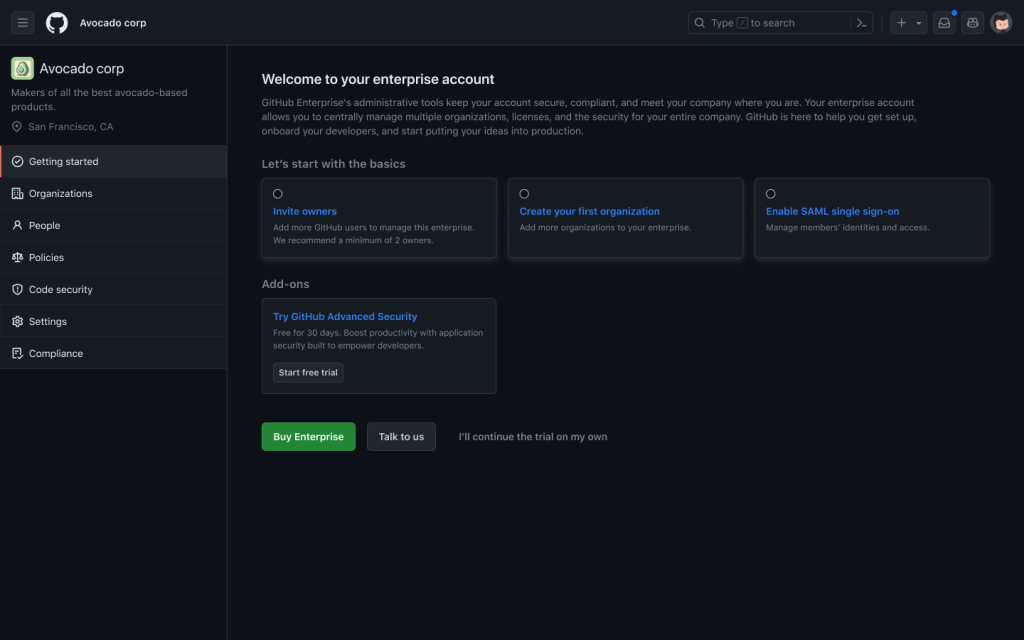
GitHub Enterprise Server 3.11 release
We are excited to announce the general availability of GitHub Enterprise Server 3.11, a release packed with tools and features designed to offer a deeper insight into the security of your code. This latest version empowers customers to take control of their application security testing, streamline repository history viewing, and bolster secret leak prevention. From code scanning enhancements to a new Activity view, GitHub CLI extensions, and data-driven insights, GitHub Enterprise Server 3.11 is here to upgrade your coding experience. Learn how these features can benefit your organization and enhance your code security.
Download GitHub Enterprise Server 3.11 now. For help upgrading, use the Upgrade Assistant to find the upgrade path from your current version of GHES to this new version.
Peace-of-mind security
In order to implement an AI-powered workflow on a large scale, it’s essential to equip your administrators with the necessary features, beginning with two significant updates that bring enhanced security and flexibility to GitHub Enterprise.
- SAML single sign-on
- Our audit log has been revamped to provide new and improved SCIM audit log entries, offering greater transparency into user and data management activities. Secondly, in a public beta release, we are introducing the display of SAML single sign-on (SSO) authentication data in audit log events for GitHub Enterprise Cloud customers into GitHub.com, enhancing identity visibility and simplifying the integration of logs from multiple systems.
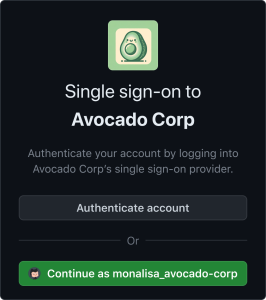
- Our audit log has been revamped to provide new and improved SCIM audit log entries, offering greater transparency into user and data management activities. Secondly, in a public beta release, we are introducing the display of SAML single sign-on (SSO) authentication data in audit log events for GitHub Enterprise Cloud customers into GitHub.com, enhancing identity visibility and simplifying the integration of logs from multiple systems.
- Custom organization roles
- Owners can now delegate organization management permissions to their users and teams, such as reading the audit log or managing applications.
Built for today and tomorrow
To pave the way for a better tomorrow, it is imperative that we make investments in the present. GitHub’s unified platform is undergoing a fundamental transformation in the way all our users engage in software development and innovation.
Regardless of your current stage in the development journey, GitHub serves as the destination for developers, acting as both a platform and a partner at every crucial juncture of the development lifecycle. We all share a common objective to make a meaningful impact, and GitHub is here to empower you in reaching your goals.
Interested in bringing GitHub’s AI-powered platform to your organization? Learn more or start a free trial today.


